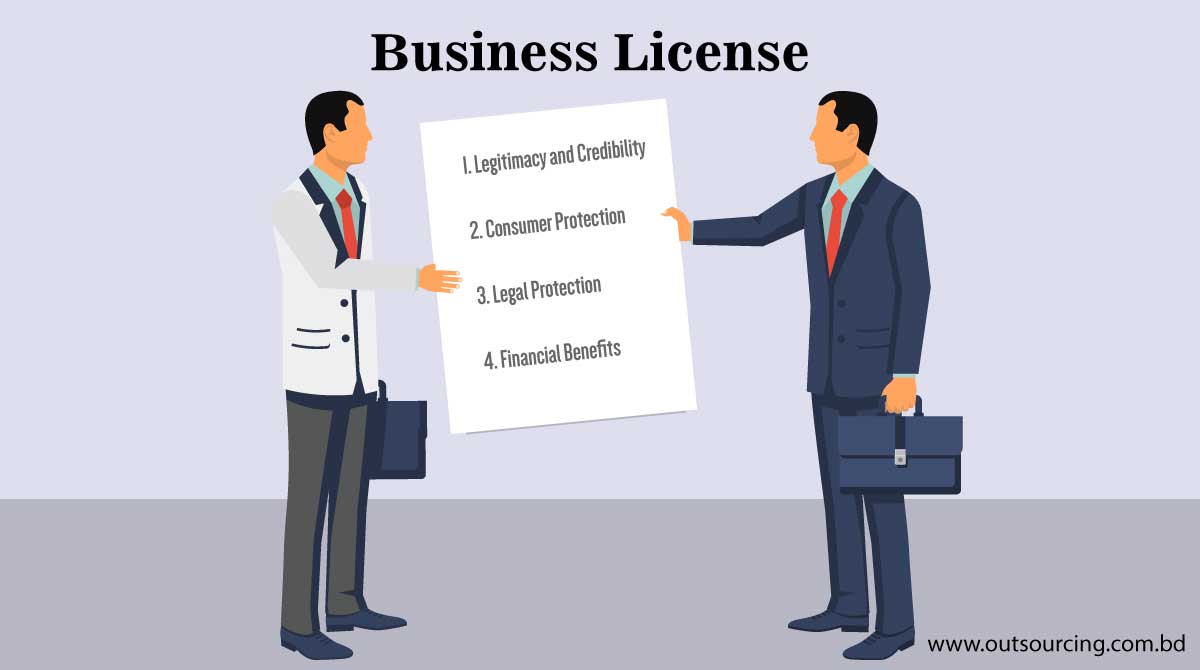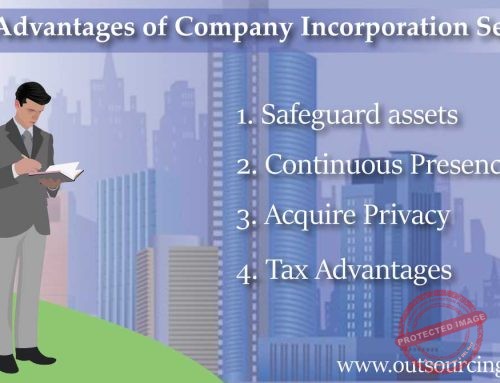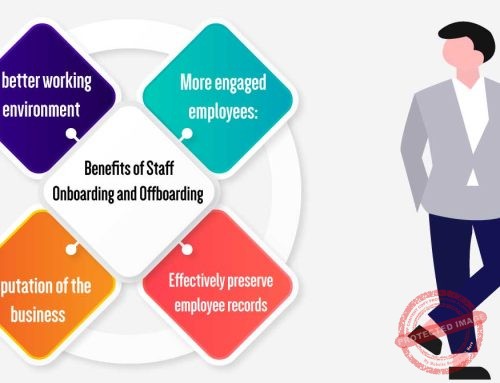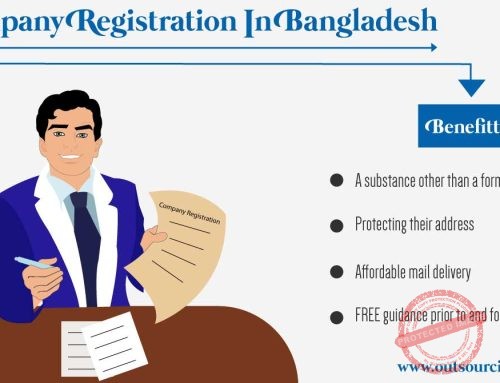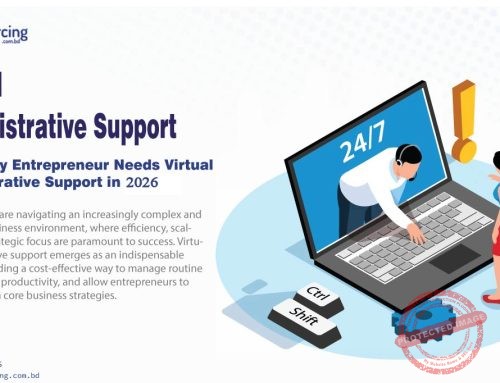Having a business license is vital for building and maintaining consumer trust for several reasons. A license signifies that a business operates within the legal framework set by local, and state, authorities, ensuring that it has met specific standards and requirements.
Additionally, a valid license provides consumers with a degree of protection, as licensed businesses are often subject to periodic inspections, audits, or evaluations, ensuring they adhere to quality and safety standards.
Therefore, a business license serves not just as a regulatory requirement but as a symbol of credibility, integrity, and accountability, all of which are essential in cultivating consumer trust and confidence.
Consequently, the following inquiry has been raised, “Why Are Business License Laws Necessary for Business Growth?”
Business license laws ensure a level playing field for businesses, promoting fair competition and instilling consumer trust. By setting standardized rules and ensuring adherence, they create a conducive environment for businesses to thrive, innovate, and grow, while also safeguarding consumer interests.
Continue reading to find out more about your options!
Why Are Business License Laws Necessary for Business Growth?
Business license laws play a pivotal role in fostering business growth. They establish a structured environment where businesses can operate, ensuring a level playing field by making sure all entities adhere to the same rules and standards.
This uniformity promotes fair competition, which is essential for innovation and growth. Business licensing offers protection to consumers, thereby instilling public confidence and trust in the marketplace.
When consumers trust that businesses are operating legally and ethically, they’re more likely to engage, leading to increased commerce and economic activity.
Furthermore, licensing often involves inspections or adherence to specific quality standards, ensuring businesses strive for excellence and continuous improvement.
Lastly, through licensing fees and related revenues, local governments can reinvest in public infrastructure, education, and other growth-promoting services, which indirectly support businesses by creating conducive environments for expansion and attracting skilled labor.
7 Benefits of Business License
A business license offers numerous benefits to both businesses and consumers. Here’s a breakdown:
1. Legitimacy and Credibility
Having a business license lends credibility to a business. It shows customers and clients that the business operates legally and adheres to local regulations.
3. Consumer Protection
Licensing often requires businesses to adhere to certain quality or safety standards. This protects consumers from fraudulent or substandard products and services.
4. Access to Business Resources
Some jurisdictions offer resources, training, or support to licensed businesses, helping them grow and succeed.
5. Legal Protection
A business license can provide a degree of legal protection for business owners. For instance, in the case of legal disputes, having the necessary licenses can demonstrate compliance with local regulations.
6. Financial Benefits
Licensed businesses may find it easier to secure loans or attract investors, as licensing demonstrates legitimacy and compliance.
7. Tax Benefits
In many places, a business license is a prerequisite to obtaining a tax identification number. This allows businesses to deduct business expenses, take advantage of tax incentives, and more.
8. Regulated Competition
Licensing can prevent market saturation by regulating the number and types of businesses that operate in an area, ensuring a fair competitive environment.
Different Types of Business Licenses in Bangladesh
In Bangladesh, the process of starting and operating a business requires various licenses and permits. Depending on the nature, scale, and location of the business, different licenses might be necessary. Here are some of the key business licenses and permits in Bangladesh:
- Trade License
- Import and Export License
- Fire License
- Environmental Clearance Certificate
- Factory License
- TIN (Tax Identification Number)
- VAT Registration
- BOI (Board of Investment) Registration
- RJSC Registration
- IRC (Industrial Registration Certificate)
- Drug License
- Telecommunication License
In 2022, there were 4,473,000 newly registered businesses, according to statistics. Compared to the previous figure for 2021, which was 7,629,000, this indicates a drop. Averaging 7,592.500 Numbers from December 2020 to 2023 with 4 observations, the BD: New Businesses Registered data is updated annually.
Why Is a Business License Needed for an Existing Company?
A business license is essential for an existing company to ensure its continuous legal operation within its jurisdiction. It demonstrates the company’s adherence to local, state, or federal regulations, thereby reaffirming its legitimacy in the eyes of both authorities and consumers.
Additionally, periodic renewal or updating of a business license ensures that the company remains compliant with any evolving rules or standards, safeguarding it against potential legal repercussions.
Renewing a company license needs periodic checks, which may act as a reminder for firms to maintain quality and safety demands. A legal license for an established firm not only legitimizes its activities but also builds trust among stakeholders.
How To Get A Business License In 5 Steps
Obtaining a business license is a crucial step in establishing a legitimate business. While the specific process can vary depending on the country, state, or municipality, the following are five general steps to get a business license:
1. Determine the Necessary License(s) for Your Business Type:
Research the type of license(s) you need based on your business activities and industry. Different types of businesses, from retail to food services to professional services, may require different licenses.
2. Check with Local Authorities:
Depending on your location, the licensing authority could be a city hall, county government, or a specialized government agency. In some areas, you may need both a city and a county business license.
If your business operates in multiple locations, you might need licenses for each jurisdiction.
3. Gather Necessary Documentation and Information:
This could include personal identification, details about your business location, a business plan, financial statements, or other industry-specific documentation. If you’re operating under a fictitious name, you may need to file that first.
4. Submit Your Application and Pay Fees:
- Complete the required business license application form.
- Some jurisdictions may allow online applications, while others might require a paper submission.
- There will likely be a fee associated with the application. The amount can vary based on the type and size of your business, and sometimes on projected earnings.
4. Stay Compliant:
- Once you obtain your license, it’s essential to keep it up-to-date. This might involve periodic renewals, paying renewal fees, or undergoing inspections.
- Be aware of any changes in regulations or requirements to ensure your business remains compliant.
Estimate Cost of Business License
Estimating the exact cost of a business license in Bangladesh (BD) can be tricky as fees can vary based on the type of business, its location, size, and specific regulatory body. Below is a generalized table estimating potential costs for various business licenses in Bangladesh
Type of License | Estimated Cost (in USD) | Remarks |
Trade License | $60 – $235 | Varies by city/municipality |
Import and Export License | $175 – $590 | Based on the business scale |
Fire License | $24 – $120 | Depending on the premise’s size |
Environmental Clearance | $120 – $1,180 | Varies by industry and impact |
Factory License | $60 – $590 | Based on the factory size |
TIN Registration | Free | Registration with NBR |
VAT Registration | Free | But monthly VAT can be charged |
BOI Registration | $120 – $590 | For foreign investments |
RJSC Registration | $60 – $235 | Based on company type |
IRC | $235 – $1,180 | Based on industry |
Drug License | $120 – $590 | Based on scale & product type |
Telecommunication License | Varies significantly | Depending on services offered |
How to Avoid Common Mistakes in the Business Licensing Process?
Avoiding common mistakes in the business licensing process involves a combination of research, vigilance, and foresight. It’s essential to thoroughly research all licensing requirements specific to the business type and its location to prevent overlooking any necessary licenses or permits.
Regularly consulting local, state, or national regulatory websites can provide updated information. Second, businesses should set reminders for renewal deadlines, as missing these can result in penalties or operational halts.
Proper record-keeping is vital, ensuring that all documents are organized and accessible. Engaging with professionals, like business consultants or legal advisors, can provide expert guidance and help navigate complex licensing landscapes.
Lastly, as regulations can evolve, it’s crucial for businesses to stay informed about any changes to maintain compliance and prevent any legal repercussions.
Why Does Every E-commerce Store Need a Business License?
Every e-commerce store requires a business license to ensure its legitimacy and adherence to local, state, or national regulations.
A business license demonstrates to both customers and regulatory authorities that the e-commerce operation is recognized and monitored by governing bodies, fostering trust and credibility.
Furthermore, having a business license ensures tax compliance, making it easier for e-commerce businesses to manage financial transactions, report income, and pay the necessary taxes.
The virtual nature of e-commerce doesn’t exempt it from the regulatory framework traditional businesses adhere to.
Possessing a business license solidifies an e-commerce store’s legal standing, enhancing its reputation among customers and safeguarding it against potential legal disputes.
In Surrey, the total count of licensed businesses stands at 19,753. From 2023 to the present, there has been a notable 16% surge in the overall number of company licenses. Furthermore, during this same period, the quantity of commercial and industrial entities experienced an 11% uptick.
Does a Business License Protect You Legally?
A business license primarily grants permission for a company to operate within a specific jurisdiction and ensures adherence to local or state regulations.
While it signifies government recognition and regulatory compliance, it doesn’t inherently provide comprehensive legal protection for business owners, especially concerning personal liability.
For shielding personal assets from business debts or potential lawsuits, business entities like Limited Liability Companies (LLC) or Corporations are more appropriate.
Therefore, while a business license is essential for lawful operation, it doesn’t offer all-encompassing legal protection. For complete legal safeguards, businesses often need to consider additional measures, such as proper entity formation and insurance coverage.
How Does Business License Impact Your Brand’s Reputation?
A business license plays a significant role in shaping a brand’s reputation in several ways:
1. Legitimacy and Credibility
Holding a valid business license showcases that the business operates within the bounds of the law. It signals to consumers and partners that the brand is a legitimate entity that adheres to local, state, or national regulations, enhancing its overall credibility.
2. Consumer Trust
Knowing that a business is licensed provides consumers with a sense of security. It offers an assurance that if anything goes wrong, there is a formal regulatory body overseeing the business operations, which can handle complaints or disputes.
3. Professionalism
A license suggests that the business takes its operations seriously. It demonstrates a commitment to following necessary procedures, protocols, and standards.
4. Competitive Advantage
In markets where consumers have a plethora of choices, being a licensed business can be a distinguishing factor. It can give a brand a competitive edge over unlicensed counterparts.
5. Avoidance of Legal Complications
Operating without a required license can lead to penalties, fines, or even shutdowns. Such legal troubles, if made public, can tarnish the brand’s reputation and erode trust.
6. Networking and Partnerships
Other businesses, especially larger corporations or government entities, often prefer or mandate working with licensed entities to ensure compliance and reduce risks.
7. Access to Resources
Some business resources, grants, or funding opportunities might be available only to licensed businesses, indirectly impacting the brand’s growth and reputation.
Common Myths about Business License Debunked
There are several misconceptions surrounding business licensing, often leading to confusion for new entrepreneurs. A common myth is that all businesses require the same type of license when in reality, licenses vary based on factors like business type, location, and services offered.
Another misconception is that once obtained, a license is valid indefinitely. Most licenses, however, have expiration dates and require periodic renewals.
Some believe that online businesses or home-based ventures don’t need licenses, but many jurisdictions still mandate them regardless of where the business operates.
Additionally, there’s a myth that a business license alone provides full legal protection, overlooking the need for other legal structures like LLCs for liability protection.
3 Tips for Business License
1. Research Thoroughly
Understand the specific licensing requirements for your business type and location. Different industries and regions might have unique prerequisites, and being well-informed is the first step to compliance.
2. Start Early
Begin the licensing process well ahead of your planned business launch. Some licenses can take time to secure, and initiating early ensures you won’t face operational delays.
3. Seek Expert Advice
Consult with legal professionals or business advisors familiar with licensing in your industry or region. Their insights can help streamline the process and prevent oversights or mistakes.
Conclusion
In the vast and multifaceted realm of business operations, obtaining and maintaining a business license stands as a foundational requirement. Beyond its primary role as a regulatory mandate, a business license underscores a company’s commitment to legality, and accountability.
It acts as a sign of trust for customers, suggesting that a company follows local and regional norms. While the licensing procedure varies by jurisdiction and business kind, the general benefit it provides in building a trustworthy business environment stays constant.
FAQ
Do online businesses need a business license?
Yes, in many jurisdictions, online businesses also require licenses, even if they operate from home. Licensing requirements are typically based on the business activity, not its location.
How long does it take to get a business license?
The processing time can vary. While some licenses can be secured within a few days, others, especially those requiring inspections or additional documentation, might take weeks or even months.
Do all businesses need a license?
Not all businesses need a license, but many do. The requirement often depends on the business type, location, and local regulations. It’s essential to check with local and state authorities to determine specific licensing needs.

